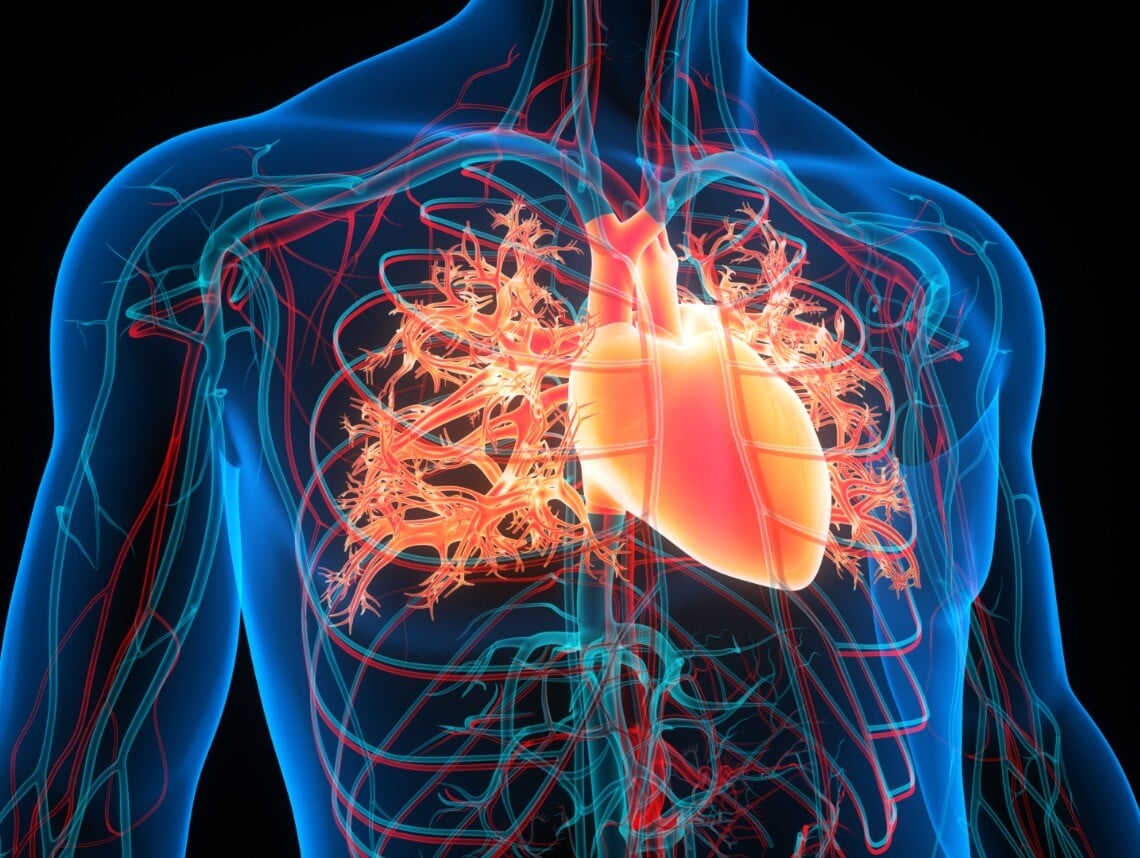
Learning that a child has a heart condition like coarctation of the aorta can bring anxiety, stress, and questions for a family. While this is a serious condition, there are effective treatment options, with potential positive long-term outlook. The best thing any parent can do when facing this condition is to take a proactive approach and work as closely as possible with health professionals to achieve an optimal outcome.
One of the first steps is to learn as much as you can about the condition and treatment options. To help, we’re sharing this easy-to-understand guide that shares essential information to help children dealing with coarctation of the aorta.
What is coarctation of the aorta?
Coarctation of the aorta, or aortic coarctation, is a congenital heart defect where a narrowing of the aorta forces the heart to work harder to move blood through the body. Coarctation literally means tightening, and the aorta is the primary artery that carries oxygen rich blood out to the rest of the body.
This condition can develop at any part of the aorta, but most frequently in the ductus arteriosus, which is a blood vessel connecting the aorta to the left pulmonary artery.
Coarctation of the aorta is often present along with other congenital heart defects, including mitral valve stenosis, subaortic stenosis, and bicuspid aortic valve.
Coarctation of the Aorta Causes
Like so many other congenital heart defects, the causes of coarctation of the aorta can be difficult to identify. The condition develops in the womb due to a combination of potential genetic factors and environmental factors. When the aorta is narrower than normal, the left ventricle, or lower left chamber of the heart, has to work harder to pump blood. This in turn raises blood pressure and can cause thickening of the ventricle.
Coarctation of the Aorta Risk Factors
Risk factors for developing coarctation of the aorta include:
- More common in males
- Having another congenital heart defect
- Presence of some genetic disorders such as Turner Syndrome
Coarctation of the Aorta Symptoms
The type and severity of symptoms will generally depend on the degree of contraction of the aorta. In many cases, symptoms are mild or even nonexistent. Patients with more contraction severe narrowing can experience the following:
- Labored breathing
- Trouble with feeding leading to poor weight gain
- Irritability
- Pale skin
- Sweating
- Chest pains
- High blood pressure
- Cramps and/or muscle weakness
Coarctation of the Aorta Complications
Even in milder cases, coarctation of the aorta should receive attention and treatment to avoid long-term complications, including:
- Chronic high blood pressure
- Bleeding in the brain
- Risk of kidney or organ failure due to reduced blood flow
- Weakened or bulging artery in the brain, called a brain aneurysm
- Aortic tearing
Diagnosing Coarctation of the Aorta
Like other congenital heart defects, coarctation of the aorta is sometimes diagnosed before birth during a prenatal ultrasound. The more severe the condition, the more likely it is to be diagnosed early. Milder cases may not be diagnosed until later in childhood or adulthood.
Doctors will usually diagnose the condition based on the presence of the above symptoms, as well as a physical examination, and diagnostic testing that can include echocardiogram, electrocardiogram, chest X-ray, and cardiac catheterization, which can help reveal blockages in the arteries.
Coarctation of the Aorta Treatment
Depending on the severity of the diagnosis, coarctation of the aorta may only require monitoring and less intensive therapies such as medications. In other cases, surgery may be required to repair, bypass, or replace the dysfunctional part of the aorta. This will generally require hospitalization after the procedure to monitor health and watch for complications. Regardless of the severity, long-term follow-up with a cardiologist is important to diagnose late problems or high blood pressure.
Caring for a Child With Coarctation of the Aorta
Children who have been diagnosed with coarctation of the aorta generally need ongoing care, including both before and after surgery if it is needed. This can mean multiple appointments and tests to make sure the heart continues to work properly. Many children with coarctation of the aorta also require activity modification, specialized nutrition including feedings through a gastrostomy tube (Gtube), and prescription medication.
There are many steps families can take to help children with coarctation of the aorta adjust to the long-term needs of this condition and enjoy a healthy and active childhood. In many situations, support groups and counseling can be a positive step to help manage any emotional and behavioral concerns
Another common form of support that helps many families are pediatric home health services. A caring and dedicated home health professional can help any young person dealing with coarctation of the aorta receive the care and attention they need. Services can be personalized for any family or situation, including respite care, accompanying children to appointments, and assisting with medication and nutritional needs.
Contact Care Options for Kids for Home Health Care
It can be hard to balance your time between work, home, and caring for a child. That’s why our team of professionals at Care Options for Kids is here to help. We have been enforcing precautionary measures and following the Centers For Disease Control (CDC) guidelines for COVID-19 to ensure the safety and health of our clients and employees.
Our home health care services offer one-on-one support in the comfort of your home. We refer loving and competent nurses to provide customized care for families — from a few hours a day to around-the-clock supervision. Contact us directly to speak with a home health care professional or request a free in-home assessment. Together we can determine the best plan of action to keep your loved ones happy and healthy.
If you or a loved one are considering Pediatric Home Health Care Services, contact the caring staff at Care Options for Kids. Call today at (888) 592-5855.
